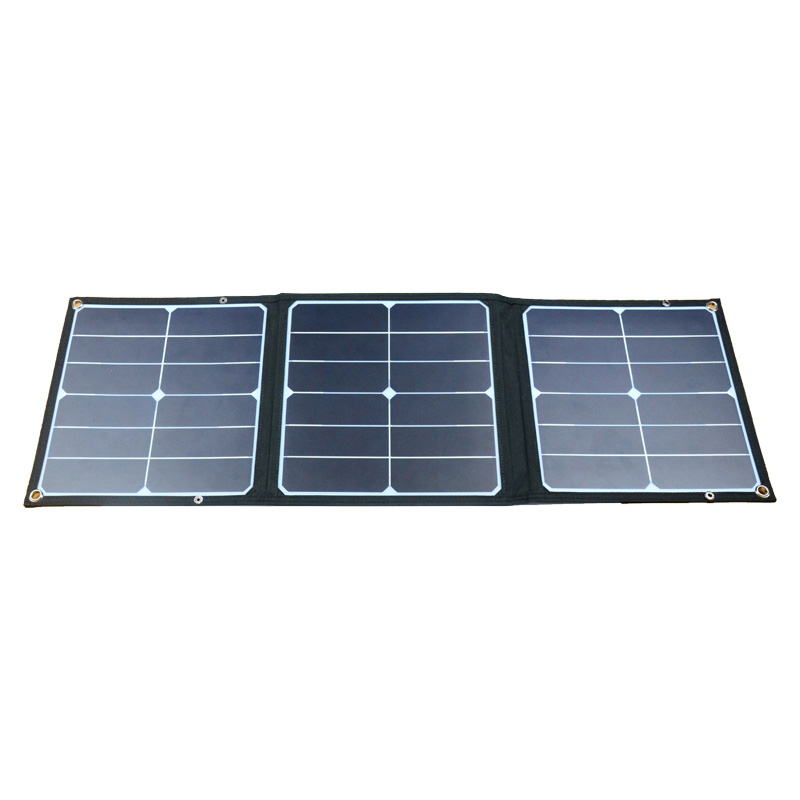Comparing Power: The Efficiency of Foldable Solar Panel Chargers vs. Other Portable Charging Solutions
2024-06-24
In today’s fast-paced world, staying connected is more important than ever. Whether you're hiking in the mountains, camping in the woods, or simply enjoying a day at the beach, having a reliable power source for your devices is crucial. Foldable solar panel chargers have emerged as a popular choice for portable charging, but how do they stack up against other solutions like power banks and portable generators? In this blog, we’ll explore the efficiency of foldable solar panel chargers compared to other portable charging solutions.
Understanding Efficiency in Portable Chargers
Efficiency in portable chargers refers to how effectively they convert and deliver power to your devices. Several factors influence this efficiency, including the energy source, conversion rate, capacity, and usage scenarios. Let’s dive into how foldable solar panel chargers compare to other popular options.
Foldable Solar Panel Chargers
1. Renewable Energy Source
Unlimited Power from the Sun: Foldable solar panel chargers harness solar energy, a renewable and virtually limitless resource. As long as there is sunlight, these chargers can generate power, making them highly efficient for extended outdoor use.
Conversion Efficiency: Modern foldable solar panels use high-efficiency solar cells, often monocrystalline or polycrystalline, with conversion rates typically ranging from 15% to 23%. This means a significant portion of the sunlight they capture is converted into usable electricity.
Direct Charging: Foldable solar panels can charge devices directly or store energy in a connected power bank for later use. This dual functionality adds to their efficiency, allowing users to harness and utilize solar energy even when the sun isn't shining.
Power Banks
2. Stored Energy Source
Pre-Charged Convenience: Power banks are battery packs that store electrical energy, which can be used to charge devices on the go. They are typically charged via an electrical outlet before use.
Capacity and Output: Power banks come in various capacities, measured in milliamp-hours (mAh). Their efficiency depends on the battery quality and the device being charged. High-capacity power banks can charge multiple devices multiple times, but once depleted, they require access to an electrical outlet to recharge.
Energy Loss: Power banks experience some energy loss during storage and transfer, typically around 10-20%. This loss is due to the internal resistance and conversion processes, slightly reducing their overall efficiency.
Portable Generators
3. Engine-Powered Energy Source
High Power Output: Portable generators, powered by gasoline or propane, offer a high output of electricity. They can charge multiple devices and even power larger equipment, making them suitable for situations where substantial power is needed.
Fuel Dependency: Unlike foldable solar panels, portable generators depend on fuel. This makes them less efficient in remote or extended outdoor scenarios where carrying fuel might be impractical.
Environmental Impact: Generators produce emissions and noise, which can be disruptive and harmful to the environment. Their efficiency is also influenced by fuel consumption and the engine's ability to convert fuel into electrical energy.
Comparing Efficiency in Practical Scenarios
1. Outdoor Adventures
Foldable Solar Panels: Ideal for extended trips, as they provide a continuous power source as long as there is sunlight. Their portability and lightweight design make them easy to carry and set up.
Power Banks: Convenient for short trips or backup power. They are easy to use but limited by their stored capacity and need to be recharged from an electrical outlet.
Portable Generators: Suitable for car camping or scenarios where high power output is needed. They are less practical for backpacking or remote locations due to their weight, fuel requirements, and environmental impact.
2. Emergency Situations
Foldable Solar Panels: Provide a reliable power source when traditional power sources are unavailable. They are efficient for charging essential devices like phones and radios during prolonged power outages.
Power Banks: Useful for short-term emergencies, offering immediate power without the need for sunlight or fuel. Their efficiency diminishes once depleted if recharging options are limited.
Portable Generators: Offer robust power for extended emergencies, capable of running larger appliances. However, they require fuel and generate noise, which can be a drawback.
Conclusion
Foldable solar panel chargers stand out for their ability to harness renewable solar energy, making them highly efficient for long-term use in outdoor and emergency scenarios. Their efficiency is influenced by solar cell technology and environmental conditions, but they offer a sustainable and portable power solution.
Power banks and portable generators each have their own strengths, such as immediate power availability and high output, but they are limited by their dependency on electrical outlets and fuel, respectively. When considering efficiency, foldable solar panel chargers provide a unique blend of sustainability, portability, and practicality, making them an excellent choice for those seeking a reliable power source on the go.



